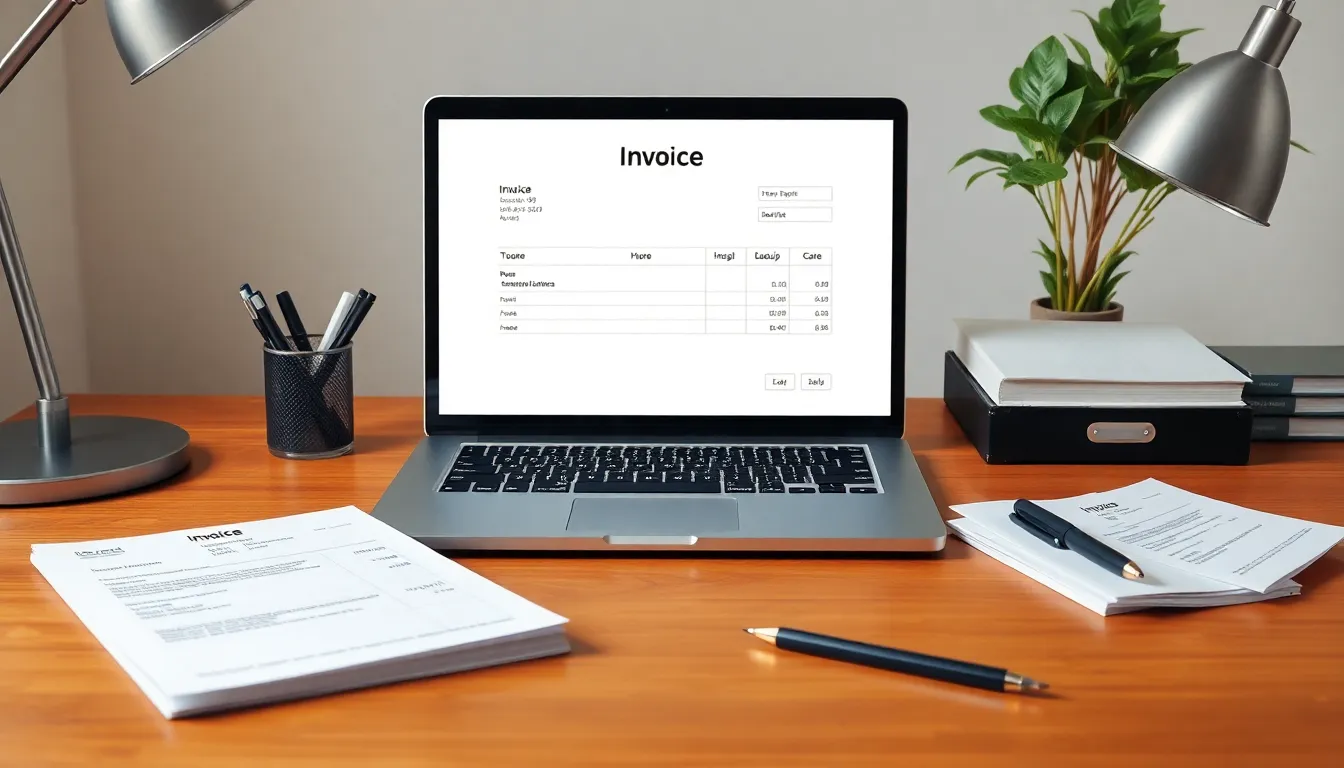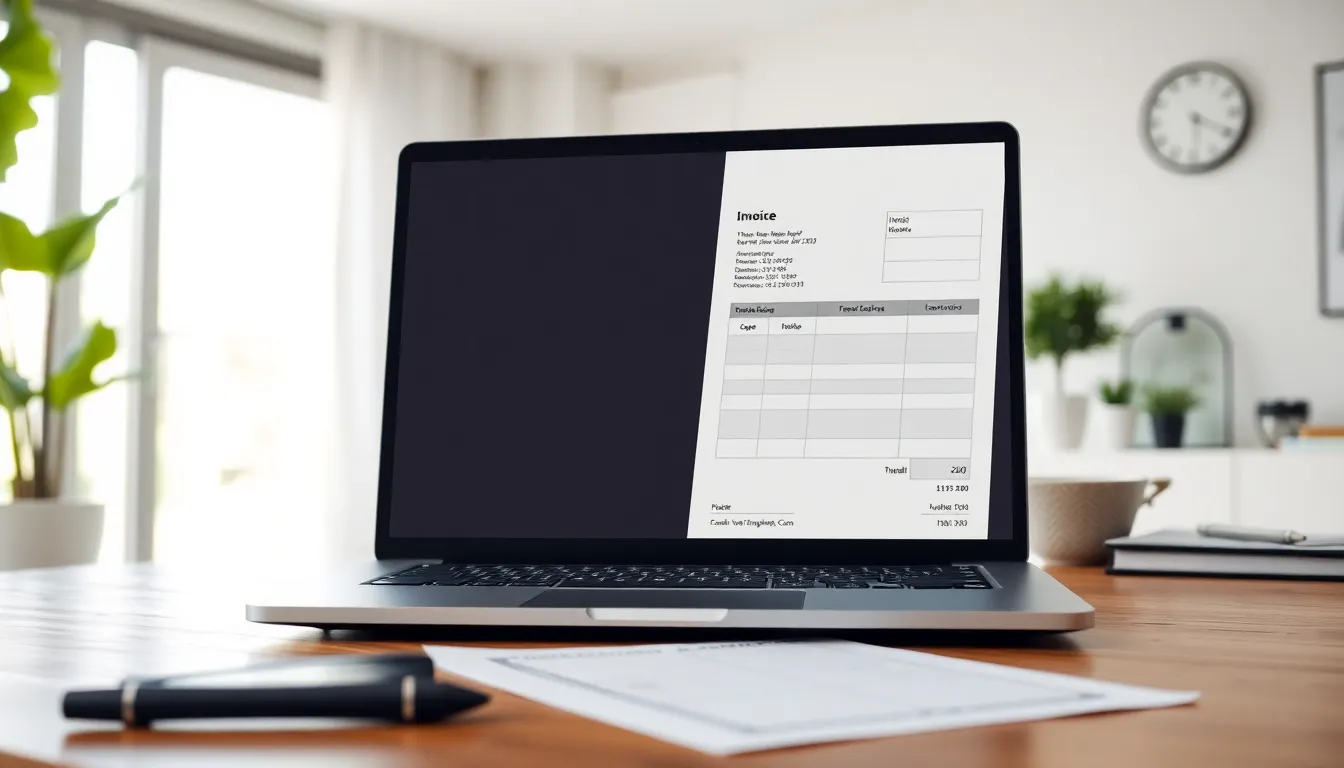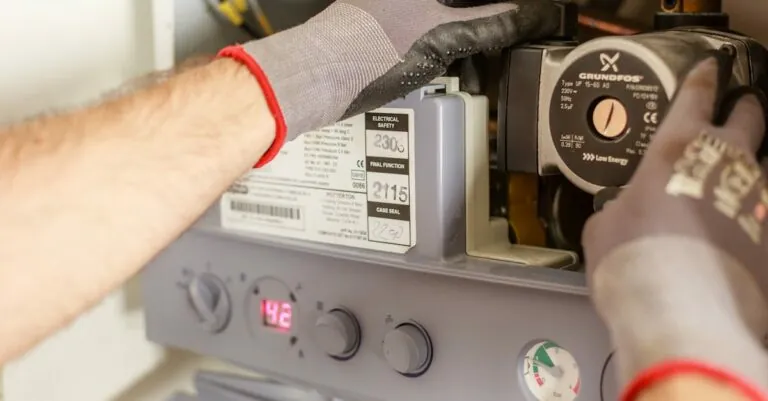Freelancing can feel like a wild rollercoaster ride—exciting, unpredictable, and occasionally nauseating. One minute, you’re basking in the glow of creative freedom; the next, you’re staring down the abyss of unpaid invoices. But fear not! Mastering the art of invoicing is your ticket to financial stability and, dare we say, a little more sanity in your freelance life.
Table of Contents
ToggleUnderstanding Invoicing Basics
Invoicing forms a crucial aspect of a freelancer’s business operations. Mastery of this skill enhances financial consistency and ensures timely payments.
Importance of Invoicing
Invoicing plays a pivotal role in maintaining professionalism. It creates a record of services rendered and demonstrates credibility to clients. Keeping accurate invoices aids in tracking earnings and providing documentation for tax purposes. Timely invoicing accelerates payment reception, helping freelancers manage cash flows effectively. This consistency in cash management directly contributes to overall business stability.
Legal Requirements for Invoices
Legal stipulations govern invoicing practices. Every invoice must include specific elements such as the business name, contact information, and unique invoice number. Including the date of service completion ensures clarity. Some jurisdictions mandate tax identification numbers, particularly for taxable services. These requirements vary, so freelancers must understand their local regulations to remain compliant. Missing legal elements can lead to complications during audits or payment disputes.
Setting Up Your Invoice


Setting up an invoice correctly is crucial for freelancers. A well-structured invoice promotes professionalism and ensures consistent payment.
Choosing the Right Invoice Format
Selecting an appropriate format can simplify the invoicing process. Many freelancers choose between templates or customization software. Invoicing software often provides convenient options, automating fields like client details and payment terms. PDF formats maintain formatting integrity, ensuring clients receive the invoice as intended. A consistent format builds recognition, making it easier for clients to process payments promptly.
Essential Components of an Invoice
An effective invoice contains several key components. Include the freelancer’s name and contact information at the top. Providing the client’s details along with the invoice date is vital for clarity. A unique invoice number helps track payments and organizes records. Describe the services rendered clearly, specifying quantities and rates. Payment terms, such as due dates and accepted methods, set expectations. For certain clients, including tax identification can ensure compliance. Each of these elements significantly contributes to a professional invoice that fosters timely payment.
How to Invoice as a Freelancer
Invoicing as a freelancer requires precision and clarity to ensure timely payments. Crafting effective invoices can significantly impact cash flow and professionalism.
Crafting a Clear Invoice Description
A clear invoice description helps clients understand the services provided. Begin with the service name, providing specific details about what was accomplished. Clearly outline the hours worked, rates charged, and any additional costs incurred. Including distinct terms like “consultation” or “design project” clarifies what services are billed. This clarity reduces confusion and facilitates smoother transactions.
Setting Payment Terms and Conditions
Establishing payment terms and conditions is crucial for timely payments. Freelancers should specify the due date for invoices, typically within 15 to 30 days. Including specifics about late fees can encourage prompt payment. Payment methods accepted also play a role; indicating options such as bank transfers, credit cards, or platforms like PayPal ensures clients know how to pay. Clear terms foster understanding and help maintain consistent cash flow.
Common Mistakes to Avoid
Freelancers often encounter various pitfalls when invoicing. Recognizing these common mistakes can enhance invoicing efficiency and ensure timely payments.
Inaccuracies in Billing
Mistakes in billing create confusion and delay payments. Common errors include incorrect client details, miscalculated totals, or wrong billing periods. Clarity is vital; invoices require accurate descriptions of services rendered. Providing precise figures for hours worked and rates charged prevents misunderstandings. Freelancers must double-check invoice details. This meticulousness fosters professionalism and minimizes disputes. Always verify the invoice before sending it out.
Ignoring Follow-Up Processes
Neglecting follow-up processes can hinder payment timelines. Many freelancers fail to remind clients about unpaid invoices, leading to cash flow issues. Establishing a routine for follow-ups is essential for maintaining financial stability. Sending a friendly reminder a few days after the due date often prompts quicker responses. Regularly checking in shows commitment to timely payments. A streamlined follow-up process significantly reduces the risk of unpaid invoices. This proactive approach enhances client relationships and improves overall financial health.
Tools and Software for Invoicing
Freelancers can streamline their invoicing processes with the right tools and software. These resources enhance efficiency, ensure accuracy, and contribute to professional presentations.
Popular Invoicing Tools
Many freelancers prefer tools like FreshBooks, QuickBooks, and Wave. FreshBooks offers user-friendly interfaces and customizable invoice templates. QuickBooks integrates comprehensive accounting features with invoicing, making it ideal for complex financial situations. Wave provides free invoicing functionalities for freelancers, covering basic needs without added expenses. Additionally, tools such as Zoho Invoice and Invoice2go offer robust functionality for tracking expenses and managing payments.
Benefits of Using Invoicing Software
Using invoicing software simplifies the invoicing process for freelancers. Automated reminders ensure clients are aware of upcoming payments, which supports timely transactions. Integration with payment gateways facilitates direct payment options, enhancing cash flow. Customizable templates allow for branding, ensuring invoices reflect a freelancer’s unique identity. Overall, these benefits contribute to improved organization and reduced administrative workload, allowing freelancers to focus on their core services.
Mastering the art of invoicing is essential for freelancers aiming for financial stability. By crafting clear and accurate invoices they can minimize payment delays and foster trust with clients. Utilizing the right tools and maintaining professionalism in every transaction creates a solid foundation for a successful freelance career.
Establishing a routine for follow-ups and ensuring compliance with legal requirements will enhance the invoicing process. With these practices in place freelancers can focus on their creative work while enjoying the peace of mind that comes from effective cash flow management. Ultimately a well-structured invoicing system is a key element in achieving long-term success in the freelance world.




